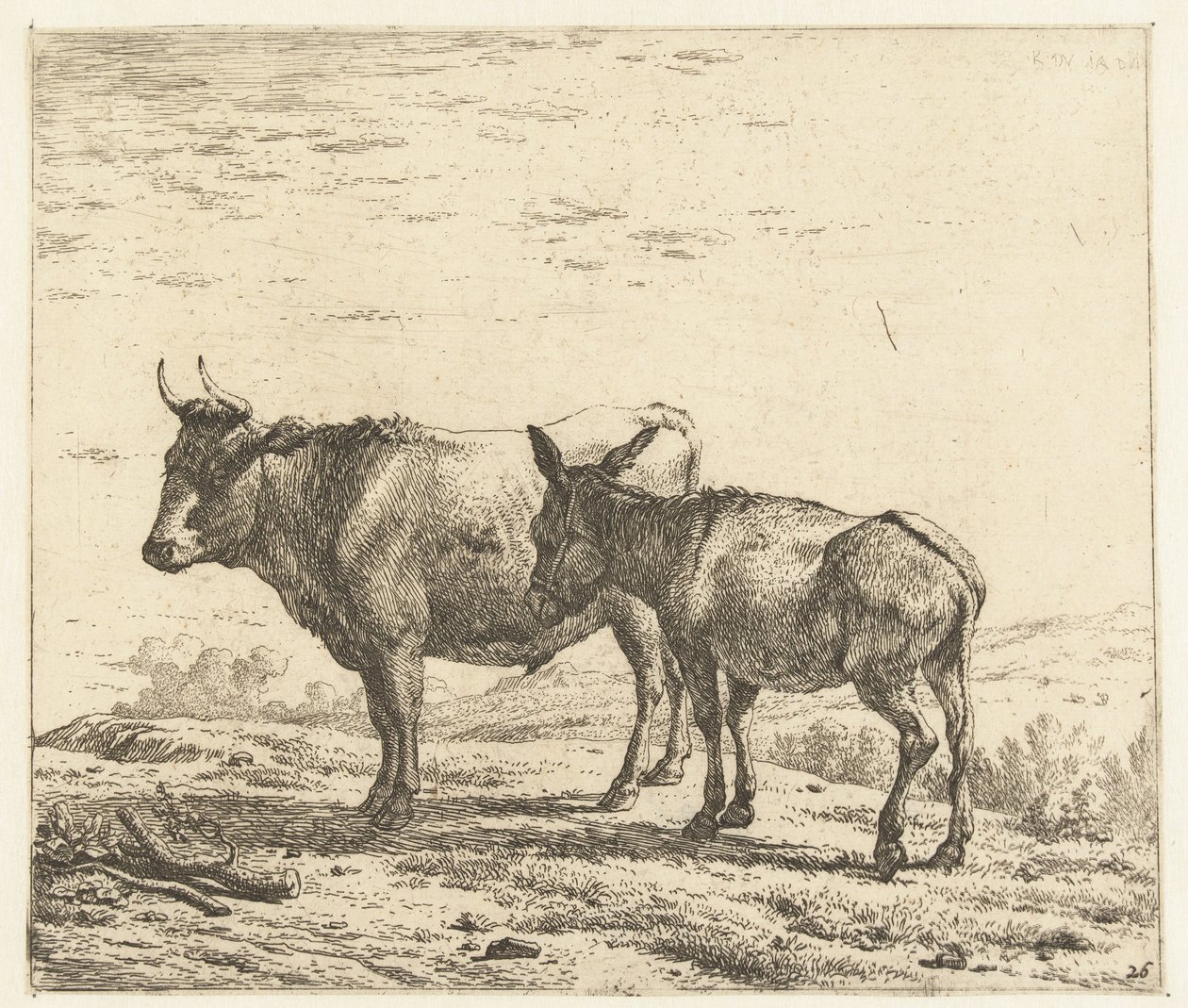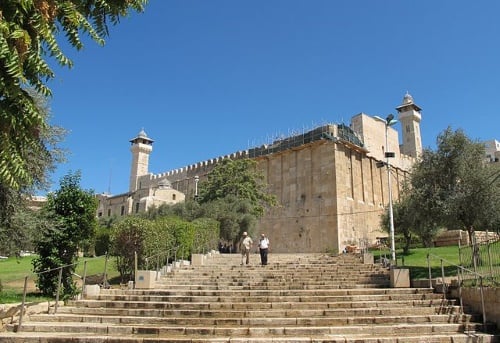August 1, 2022|ד' אב ה' אלפים תשפ"ב Matos-Masei 5782: Keeping the Main Thing the Main Thing
Print ArticleMoshe had invested 40 years of his life towards one goal: leading Bnei Yisrael from Egypt to Eretz Yisrael. And he is finally on the cusp of making that dream a reality, when the tribes of Gad & Reuven approach him with a request: They do not want to cross over into Eretz Yisrael. They wish to stay on the Eastern bank of the Jordan River.
And after Moshe Rabbeinu responds with disbelief that they would even consider leaving the rest of Am Yisrael on their own and not entering the land, they tell Moshe, don’t worry, we’re not abandoning everyone else:
גִּדְרֹת צֹאן נִבְנֶה לְמִקְנֵנוּ פֹּה וְעָרִים לְטַפֵּנוּ:
We will build pens for our sheep, and cities for our children.
We will then head into battle with the rest of Am Yisrael, assist in the conquest of Eretz Yisrael, and only then will we come back to our families.
And Moshe accepts their offer, but he offers them one more piece of instruction in his response:
(כד) בְּנוּ לָכֶם עָרִים לְטַפְּכֶם וּגְדֵרֹת לְצֹנַאֲכֶם וְהַיֹּצֵא מִפִּיכֶם תַּעֲשׂוּ:
All you had said is fine. Build cities for your children, and build pens for your sheep, and do all you said you would do.
And Rashi notes that Moshe, even while repeating that which Bnei Gad & Reuven said to him, flips the order. He puts the children first and the animals second. Why? Because he was bothered by the priorities of the Bnei Gad & Bnei Reuven. So, says Moshe, in his response:
אמר להם משה לא כן עשו, העיקר עיקר והטפל טפל,
Not so fast. Even as you will do what you have said, make sure to keep that which is primary primary, and that which is secondary, secondary.
Take care of your children and your families, and THEN take care of your livestock.
As Stephen Covey writes, “The main thing is to keep the main thing the main thing.”
Rav Henoch Lebowitz, the Rosh Yeshiva of Chafetz Chaim in his sefer Chidushei Lev asks a simple question: Was this really the mistake of the leaders of the tribes of Gad & Reuven? These are the representatives of the community. They are coming to offer a delicate plan to Moshe Rabbeinu. Is it really believable that they wouldn’t be more careful in how they presented the plan to Moshe Rabbeinu? Did these individuals who had spent the last 40 years in the desert learning at Moshe Rabbeinu’s feet really put their sheep before their children?
And he gives a beautiful answer: Of course, the Bnei Gad & Reuven had the right priorities. Their primary focus was on building their community, raising their children to be yirei shamayim, to be Bnei Torah. But, of course, raising a frum family, building a Torah community is expensive. And without the finances to pay for the life they were building, they wouldn’t be able to make those dreams come to fruition.
So what happened? These individuals had to invest themselves so much in their work in order to pay for the yeshivos, the shuls, the infrastructure of their community. They spent so many of their waking hours involved in making a living. And whenever we invest our time and energy so much in something, you become drawn to it, you become more invested, and your mind becomes enveloped by it.
The Sefer HaChinuch tells us this is true when it comes to mitzvos. As he writes in many places, “Acharei HaPeulos Nimshachim HaLevavos”. The more we involve ourselves in Torah and Mitzvos, the more it becomes a part of us. And if it’s true with Torah, it can be true with any endeavor, including the world of finances and money. And when that happens, over time slowly we forget which one is the means and which one is the ends. It doesn’t happen on purpose. It happens naturally.
In fact, that’s the reason why the Bnei Gad & Bnei Reuven included their children in the conversation in the first place! Why did they talk about their cattle and their children? Just say, we’ll build pens for our livestock and build cities. Why mention the children? Because the cattle was only there in order to provide for their children. And they, themselves knew that! It’s just that they had slowly become so invested in the financial side of providing for their families that they had begun to put their priorities out of order.
So, Moshe Rabbeinu, while agreeing with their approach in general, offers them a little reminder. “Chevra, I see what’s happening here. I know that fundamentally your priorities are correct, but I’m hearing in your presentation that you are starting to forget what is what. Remember to keep the ikar ikar, and the tafel tafel. Remember why you’re doing all of this in the first place. Remember to keep the main thing the main thing!
“As you are preparing to embark on this new project”, says Moshe, “take a moment to stop. A moment to pause and remind yourselves WHY you’re doing all of this. Remind yourselves that money is NOT a value. It is that which helps us to support those things that are truly our values”.
And why was Moshe Rabbeinu so adamant to deliver this message to Bnei Gad & Reuven? Why is it so important to take time here and there to RESTATE our values? To keep the Main Thing the Main Thing?
Because RESTATING our values and how we relate to money protects
us from GETTING LOST IN IT. Because when Money IS a VALUE, there is no end to its pursuit. As chazal write in Pirkei Avos, “Oheiv Kesef Lo Yisba Kesef”, “One who loves money will never be satisfied by it”.
But when we remember money is just a tool to help us accomplish our real goals - raising families and cultivating a community built on the values of Torah, Mitzvos, and Avodas Hashem - then money as a value in and of itself takes a backseat.
We all live in a world that is becoming more expensive by the day. Money is the issue of the day wherever we turn, both in the secular world, and, unfortunately, in the frum world as well. No matter your hashkafa, keeping up with the Jones’ is an issue in almost every frum community in the world.
And it’s not surprising that it would happen in the frum world. Living a frum life is extraordinarily expensive, and so it asks of us to be more involved in the world of money so that we can live that life. And so, the cycle begins. We have to make more money, so we pay more attention to it, and so we become pulled into a society that has an unhealthy focus on money and things, all to support our families and a community that stands for the values of Torah which does NOT believe in money and things as a value in and of themselves.
So, what are we to do? What does Hashem want from us?
The parsha begins discussing the laws of vows, and it tells us “K’chol hayotzei mipiv yaaseh”, everything that leaves your mouth you should do.
And Rav Gavriel Zev Margolis, in his sefer Toras Gavriel, points out that the language of “K’chol” is funny in this context. The Torah is trying to drive home the point that one should do exactly what we take a neder to do. If that’s true, then the Torah should say “Kol HaYotzei MiPiv Yaaseh.” DO EVERYTHING, EXACTLY what you said, that’s what you should do! “K’chol” is translated as “similar to, close to”, which implies that somehow you don’t have an obligation to do ALL you have promised!? How could that be?
And he explains that the Torah understands human psychology. Of course, the HKBH expects us to fulfill our nedarim. However, He also recognizes that nedarim, and really anytime we take on something new, comes out of an emotional experience. We have certain experiences that awaken a passion, a desire to grow, so we accept something new upon ourselves.
And then what happens? Over time that inspiration fades, the intensity isn’t there, and we are challenged to continue to push forward anyhow. And at that moment we have a choice: We can let go of what we had set out to do, or we can say, I know I don’t have the same level of inspiration and intensity, but I can still tap into that initial feeling by continuing to push forward day after day.
It may not be KOL, but it can be K’CHOL, it can be a fulfillment of what I set out to do, even if it’s not with all the same exact fire and passion. Even if it’s not perfect.
The good news is that like the Bnei Gad & Bnei Reuven, we have the right values. We know what really matters. It’s just a matter of taking the time - every once in a while - to remind ourselves what we’re doing all this for. It does have to be perfect, or solve the whole problem. But even “k’chol” is worthwhile.
Maybe that’s with a sign on the wall of your office or maybe it’s taking upon ourselves to do something to focus more on our Avodas Hashem, some way of helping ourselves not to lose focus. To remind ourselves that we will find so much more meaning in our lives when we remember to Keep the Main Thing the Main Thing.




